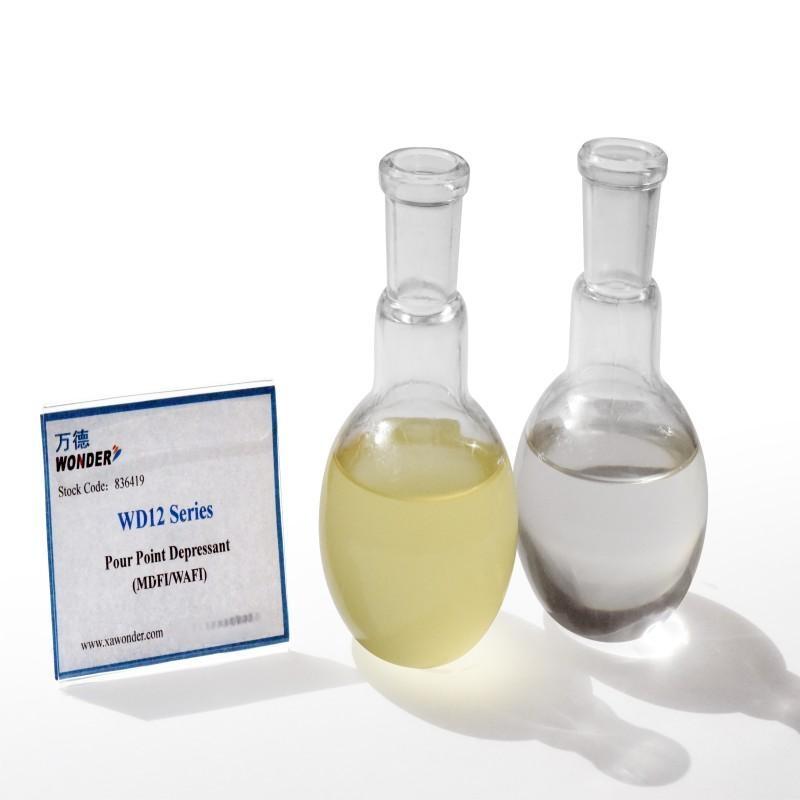-
Categories
-
Pharmaceutical Intermediates
-
Active Pharmaceutical Ingredients
-
Food Additives
- Industrial Coatings
- Agrochemicals
- Dyes and Pigments
- Surfactant
- Flavors and Fragrances
- Chemical Reagents
- Catalyst and Auxiliary
- Natural Products
- Inorganic Chemistry
-
Organic Chemistry
-
Biochemical Engineering
- Analytical Chemistry
-
Cosmetic Ingredient
- Water Treatment Chemical
-
Pharmaceutical Intermediates
Promotion
ECHEMI Mall
Wholesale
Weekly Price
Exhibition
News
-
Trade Service
On August 11, the Organization of the Petroleum Exporting Countries (OPEC) and the International Energy Agency (IEA) made two different judgments on oil demand expectations, which made the already unpredictable crude oil prices even more confusing
.
Experts interviewed by reporters believe that the reason why the two institutions have different expectations is because of their different
starting points.
At present, the crude oil market is mainly affected by the expectation of economic recession and the expectation of continued tight supply, and oil prices may continue to remain in a wide range of fluctuations in the future
.
The expectations of the two institutions are very different
OPEC believes that due to the pressure on companies and consumers by rising prices, central banks tighten monetary policy to curb inflation, global economic growth this year and next year will be lower than expected, and there is no need for
further production of crude oil in the short term.
As a result, OPEC lowered its global oil demand forecast to 260,000 bpd in 2022, the third time OPEC has lowered its forecast
since April this year.
The International Energy Agency believes that as natural gas supply continues to be tight, this will drive global oil demand growth
.
As a result, the IEA has raised its global oil demand growth forecast by 380,000 barrels in 2022, an increase of about 2%.
With the release of the two institutions' very different expectations, on August 11, oil prices rebounded sharply after a continuous decline in early August, and as of the close of the 11th, WTI September crude oil futures rose 2.
62%, and Brent October crude oil futures rose 2.
26%.
Qiao Dewu, former deputy chief engineer and senior researcher of the Strategic Research Center for Oil and Gas Resources of the Ministry of Land and Resources, said in an interview with this reporter that OPEC and the International Energy Agency have different interests and starting points, and it is understandable
that there are differences in the forecasts of oil demand.
OPEC represents the interests of various oil-exporting countries, which want oil prices to be stable, not too volatile, and not too much
.
The price of oil is determined by supply and demand, and when there is more supply, the price will fall
.
Lowering demand expectations, slowing down production capacity, reducing supply, oil prices will be relatively stable, which is the principle that OPEC has long followed, which is actually telling member countries not to release a large amount of crude oil production capacity
.
The International Energy Agency hopes that various energy sources will fully meet the needs of world development and expand the world's energy supply
as much as possible.
Qiao Dewu believes that from the current point of view, the IEA's forecast is reasonable, because other organizations have made similar judgments
about the world economic situation.
If the epidemic can be eased in the future, the world economy will enter a state of recovery, and the demand for energy will also increase
.
In the future, international oil prices may fluctuate sharply
As for whether different expectations will affect oil prices, according to Qiao Dewu's analysis, there will be some impact on the trend of oil prices, but from the perspective of the general trend, the future oil prices will depend on the development of the
world economic situation.
In Qiao Dewu's view, if the Russian-Ukrainian conflict intensifies, it is very likely that oil prices will continue to rise to more than $100 / barrel in the future, but it will not rise as much
as in the previous stage.
"Oil prices are at the level of 80-90 US dollars / barrel, which is in line with the characteristics of
economic activity.
" At present, there are many uncertainties, the most important of which are affected by the two uncertainties of the Russian-Ukrainian conflict and the epidemic
.
Qiao Dewu said
.
Xi Jiarui, an analyst at Jinlianchuang Crude Oil, analyzed this reporter that this year's crude oil prices rushed to a higher position before June 15, and then fell back
.
At present, the price of US oil and Butrem crude oil has returned to the level
before the Russian-Ukrainian conflict.
Now mainly affected by the expectation of a recession and the expectation of continued tightness in crude oil supply, under the interaction of these two expectations, it is likely that crude oil prices will continue to maintain a pattern of large fluctuations in the future
.
China wants to take the energy rice bowl into its own hands
In the face of the rapidly changing international crude oil market, China, as a major energy consumer, has a high dependence on crude oil, and 2/3 of crude oil relies on imports.
Qiao Dewu proposed that China must take the following four steps to secure the energy rice bowl
.
First, we must continue to strengthen cooperation in oil and gas exploration and development that we already have abroad, and at the same time we must open up new markets
with potential.
Second, we must continue to increase the intensity of domestic oil and gas exploration, adhere to the combination of conventional oil and gas and unconventional oil and gas, strengthen theoretical and technical research, and promote domestic oil and gas exploration and development by solving major geological problems, which is an important way
to solve energy problems.
Third, it is necessary to increase the state's investment in oil and gas strategic reconnaissance and carry out long-term strategic investigation and research on oil and gas resources, and cannot rely solely on oil and gas companies to engage in exploration and development
.
Fourth, it is necessary to strengthen the reserve capacity
of oil and natural gas.
At present, China's reserve capacity does not match oil demand, and construction efforts need to be increased
.







